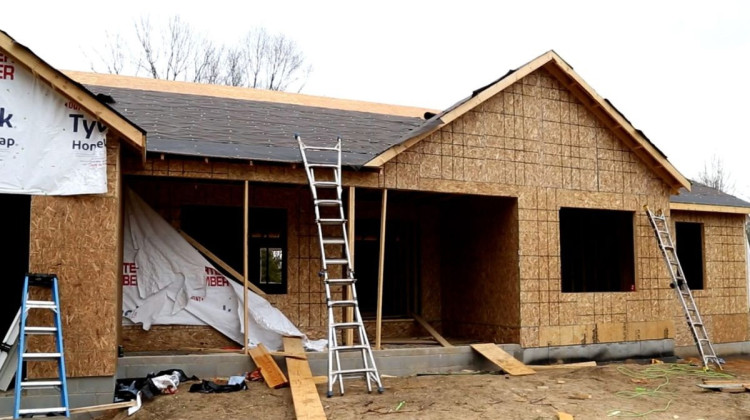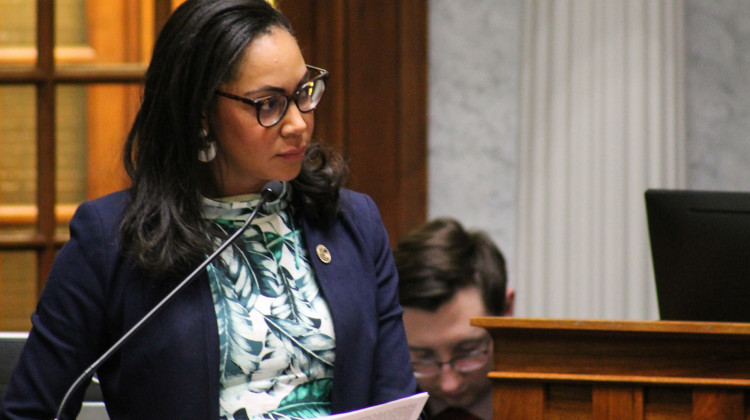
FILE PHOTO: During a panel Q&A in April, residents were able to ask a panel from the EPA questions about this season’s remediation plans.
Lauren Chapman/IPB News, fileA group of residents living in the USS Lead Superfund site is getting a long-awaited grant from the Environmental Protection Agency. The $50,000 grant will help the group hire a technical advisor who can analyze and explain EPA documents to residents.
Lori Locklear has been with the East Chicago Calumet Coalition Community Advisory Group since it started two years ago.
“An average person like me, when you’re reading through this information, it’s hard to understand what the terms mean and what the data means,” she says.
Locklear says had some information been explained to residents nine years ago when USS Lead was put on the National Priorities List, perhaps they would have had more of a say in the EPA’s decision making and taken further steps to protect their families.
READ MORE: East Chicago Stops Doing Dangerous Partial Lead Pipe Replacements
Attorney Debbie Chizewer represents the East Chicago Calumet Coalition Community Advisory Group through Northwestern Law School's Environmental Advocacy Clinic.
“For EPA’s past cleanup decisions at the site, the community did not have the benefit of these outside advisors and the plans really should have been more protective of human health,” says Chizewer.
Chizewer says fortunately, the technical advisor could discuss important developments coming up like the EPA’s proposed cleanup plan for the West Calumet Housing Complex and its investigation of the industrial area of the USS Lead site.
Indiana Environmental reporting is supported by the Environmental Resilience Institute, an Indiana University Grand Challenge project developing Indiana-specific projections and informed responses to problems of environmental change.
 DONATE
DONATE






 Support WFYI. We can't do it without you.
Support WFYI. We can't do it without you.